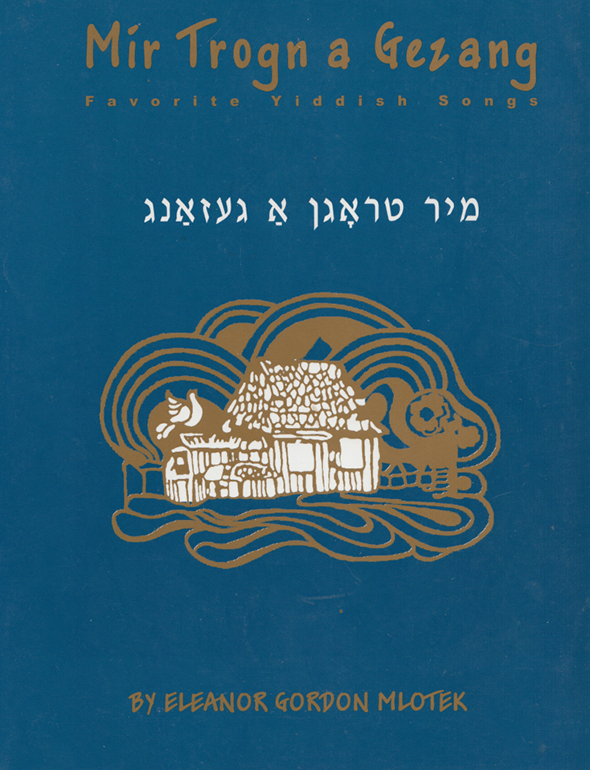Text by Sh. Ansky (1863-1920), folklorist and author of the Dybbuk. The Shvue is the anthem of the Jewish Labor Bund, sung by Jewish workers and socialists in Europe and the United States.

Brothers and sisters in work and in need,
all who are scattered far and wide.
Together, together, the flag is ready,
it waves with rage, it is red with blood
An oath, a life-and-death oath!
Heaven and earth will hear us,
the bright stars will bear witness,
an oath of blood, an oath of tears –
We swear, we swear, we swear!
Brider un shvester fun arbet un noyt,
Ale vos zaynen tsezeyt un tseshpreyt.
Tsuzamen, tsuzamen, di fon zi iz greyt,
Zi flatert fun tsorn, fun blut iz zi royt,
A shvue, a shvue oyf lebn un toyt!
Himl un erd vet undz oyshern,
Eydes veln zayn di likhtike shtern,
A shvue fun blut un a shvue fun trern —
Mir shvern, mir shvern, mir shvern!
ברידער און שװעסטער פֿון אַרבעט און נױט,
אלע װאָס זײַנען צעזײט און צעשפּרײט.
צוזאמען, צוזאמען, די פֿאַן זי איז גרײם,
זי פֿלאַטערט פֿון צאָרן, פֿון בלוט איז זי רױט,
אַ שבֿועה, אַ שבֿועה אױף לעבן און טױט!
הימל און ערד װועט אונדז אױסהערן,
עדות װעלן זײַן די ליכטיקע שטערן,
אַ שבֿועה פֿון בלוט און אַ שבֿועה פֿון טרערן —
מיר שװערן, מיר שװערן, מיר שװערן!
Song Title: Di Shvue

First published in 1972, Mir Trogn A Gezang: Favorite Yiddish Songs was reprinted six more times (in 1977, 1982, 1985, 1987, 1988, 2000) due to popular demand. The songs in this anthology represent a sampling of beloved folk and well-known Yiddish songs, many of which are scattered in various song collections; some appear in very rare and inaccessible collections; and some were never before published. Folk songs comprise about a third of this volume and were selected mainly on the basis of popularity and sometimes for their historic significance. Needless to say, they are only representative of the vast, rich treasure of Yiddish folk material. The selection was made not only on the basis of personal preference, but in the knowledge they are favorites of many who sing these songs. Most of the songs represent the repertoire that was sung at Yiddish summer camps, May 1st demonstrations and at social gatherings. Many songs were introduced to American Jewry by Jewish immigrants who came to the United States after World War II, for whom these songs had been favorites in Poland and other East European communities destroyed by the Nazis.